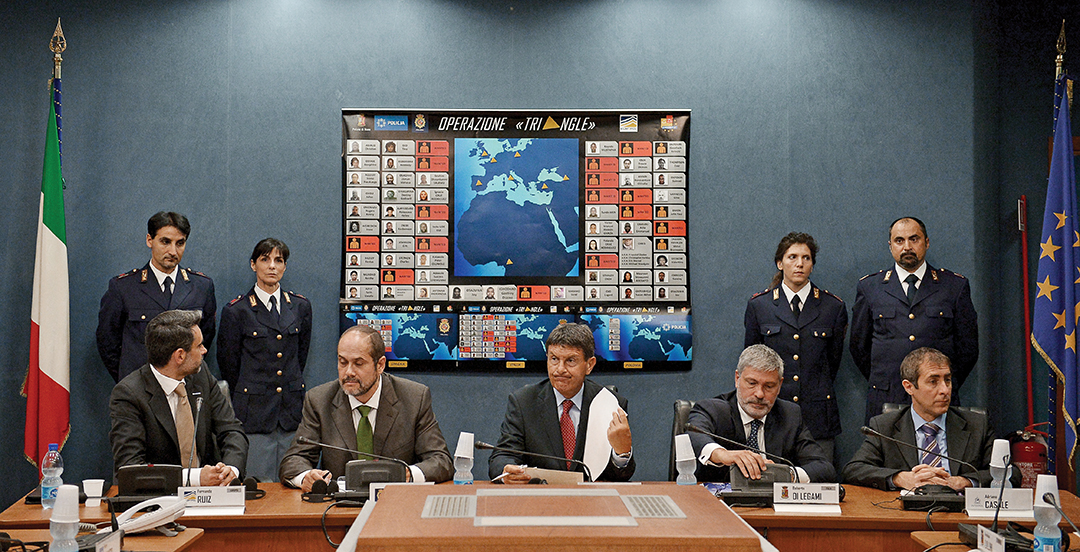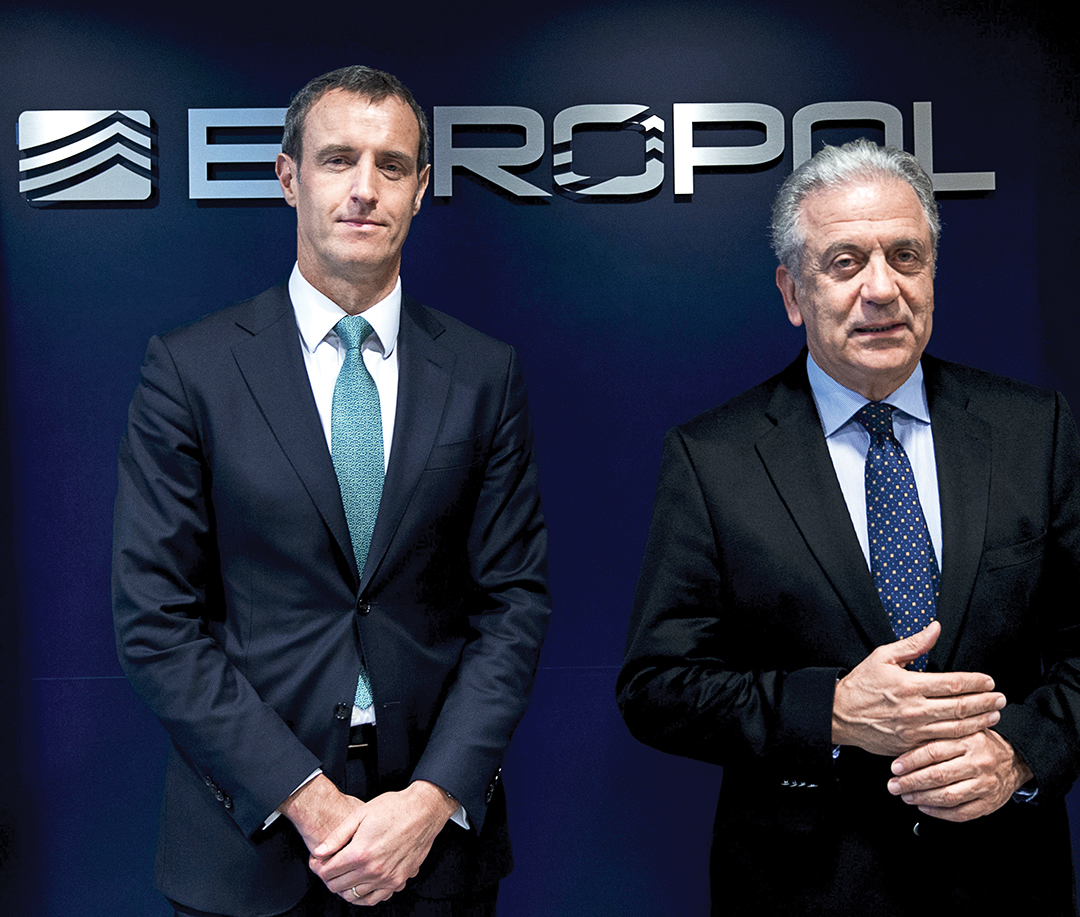Law enforcement must stop counterfeiting, smuggling and other crimes that finance terrorism
By Jürgen Storbeck, founding director of Europol
It is important that the George C. Marshall European Center for Security Studies is dedicating an entire issue of per Concordiam to the changing face of organized crime. I am pleased to have been invited to elaborate on the challenge this threat poses to the international community and to outline two ideas that have recently enriched the debate about how to improve the fight against transnational organized crime networks.
What is at stake?
Consider an operation with revenue of $11.4 billion per year and more than 10,000 employees. What sound like the financial figures of a successful medium-size company are actually the operating numbers of one of the largest transnational criminal groups. According to reports from the United Nations Office on Drugs and Crime, organized crime generates global annual revenues of $870 billion. That is 1.5 times larger than the United States’ defense budget.
Organized crime has different facets, is both service- and market-oriented, and encompasses more than drug, arms and human trafficking. A good example is counterfeit pharmaceuticals, which alone kill almost a million people every year. Organized crime is able to make exorbitant profits in this area because there is little pressure from law enforcement or other politically relevant actors.
Let us also turn to recent events that have attracted the world’s attention: There is evidence that the Paris and Brussels terrorist attacks were financed with money that organized gangs made from petty crime. It is too dangerous for terrorists to sell drugs because of the risk of being caught. Instead, they sell counterfeit stimulants, smuggled cigarettes or stolen sneakers — goods that are generally undetected by police and security services — because there are enormous gaps in interagency information flows at the national and international levels.

AFP/GETTY IMAGES
The concept of our criminal and security laws, as well as the strategies and methodology of our law enforcement and security agencies, are reactive and based almost exclusively on years of experience. Hence, governments are often slow to adapt to new trends such as the increasing convergence between terrorism and organized crime.
What needs to be done?
A rough understanding that governments need to improve the exchange of data, establish joint investigation centers, and coordinate approaches to security and combating crime dates back to the mid-1990s. Political discussions led to the establishment of Europol. Today it is essential to formulate a new and comprehensive European approach; interconnectedness must go beyond the mere exchange of data, the pooling of information and the analysis of case studies. Some successful new initiatives, such as the European Multidisciplinary Platform against Criminal Threats (EMPACT) and the European Union’s security agenda, are steps in the right direction.
We need to start thinking of security as a joint endeavor, as a mix of analysis, enforcement and working within networks. Therefore, we need to establish a high-level body tasked with threat analysis — based on information from law enforcement agencies and intelligence services — to properly conduct risk assessments, choose appropriate countermeasures, and present viable courses of action to governments and other authorities.
Such an organization might help to overcome the gridlock of national interests, as well as different police and security systems, incompatible databases and different administrative systems. All security agencies should act on the basis of a joint political and strategic agenda. We need a format that allows all representatives at the executive level to cooperate on equal footing. This could be a council of security and policy experts, something that does not yet exist within the structure of the European Council. To fight this new phenomenon — the convergence of terrorism and organized crime — stronger cooperation is needed between the public and the private sectors.
Counterfeit Viagra, smuggled luxury products or stolen tennis shoes are crimes that are often overlooked by the authorities responsible for fighting terrorism. At first glance, this kind of petty crime does not appear important and takes place under the radar of agencies tasked with fighting crime and terrorism. We have recently discovered, however, that there is a connection between selling counterfeit goods in the suburbs of Paris and the ability to buy weapons in Slovakia or Brussels. Trade and industry could help disclose these links.

AFP/GETTY IMAGES
The technical means by which private businesses trace smuggled products and detect illicit goods are becoming more and more sophisticated — as are the perpetrators. Today, it is possible to use a simple app to determine whether a product is actually from the advertised, legitimate producers or from shady sources. Public-private crime-fighting partnerships should become key aspects of our security strategies because revenues generated by illicit trade may be used for aims that are much more evil than the seemingly harmless sale of faked products suggests. If manufacturers, credit card agencies, social networks, the pharmaceutical industry and other business interests could pool their data and share them with security agencies — under strict adherence to rule of law — that would vastly improve security.
Our American partners have worked long and hard to improve the fight against organized crime. The U.S. has a national strategy that integrates information, intelligence, and the competences of law enforcement and security services. It has also established a coordinating body at the federal level while improving lines of communication between the public and the private sectors. I am convinced that such an approach could pay off for Europe and advocate that we investigate which of those instruments would be adaptable to our region.
Dear readers, $870 billion in the hands of organized criminals is a highly dangerous weapon. This vast amount of money can undermine our way of life. May this edition of per Concordiam contribute to the overall momentum needed to formulate firm responses to this threat.


Comments are closed.